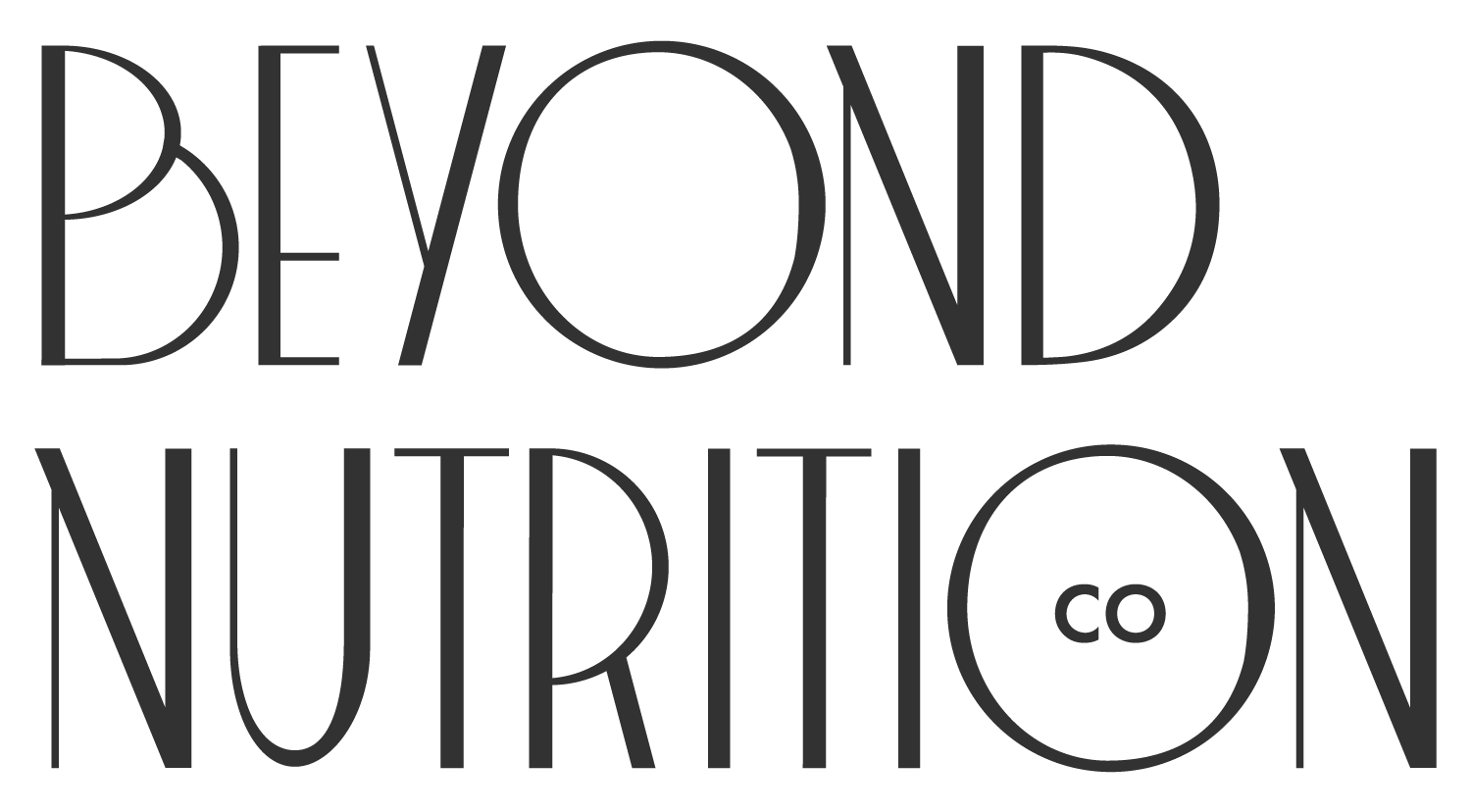Is SIBO Affecting Your Fertility?
Edited and revised by Emily Cafarella: Click here to read her bio and learn more about her!
Written by Sarah Laswell: Sarah is currently working on her M.S. in Nutrition Sciences at the University of Alabama at Birmingham. She hopes to start practicum in the fall and become a Registered Dietitian by the end of 2025. Once she graduates, she would love to help women optimize their hormones and live their best life through exercise and nutrition. Sarah’s favorite things to do are workout, hike, cook, and take care of her baby.
You’ve wanted to be a mom for so long, but nothing seems to be helping. You feel like you’re eating all the right things to fuel your body properly but you can’t seem to get pregnant or maintain the pregnancy. Along with that, you just don’t feel like yourself.
You keep hearing from doctors that your abdomen hurting, feeling uncomfortable, exhausted, bloated, and weak is just a ‘normal’ part of being a woman.
Well I’m here to tell you that symptoms like this are NOT NORMAL, and they can be a sign of a deeper issue. If you are tired of feeling like this and ready to stop searching for answers, look no further. We may have your answer!
What Is SIBO?
Small Intestinal Bacterial Overgrowth (SIBO) is just like what it sounds, too much bacteria in your small intestine. This can be caused by a few different things like having too little stomach acid (hello, H. Pylori), dysmotility of the small intestine (often occurs in hypothyroidism), using certain medications too often (antibiotics or narcotics), and even having an issue of the structure in your small intestine (like small bowel diverticulosis) (4).
The root causes could potentially mean that you lack enough gastric acid, or have had a previous motility issue that was unable to stop the overgrowth of bacteria (5).
Symptoms and Effects of SIBO
Depending on the severity, symptoms can range from your abdomen being uncomfortable, to weight loss and malabsorption issues (5). Some things you might be experiencing if you have Small Intestinal Bacterial Overgrowth are (4):
abdominal distension
abdominal pain
bloating
constipation
diarrhea
gas
indigestion
nausea
unintentional weight loss (4).
SIBO-related micronutrient deficiencies and malabsorption issues can cause your fertility to struggle. Common vitamin deficiencies that can be the result of SIBO are vitamins B12, A, D, E, and K (5). SIBO can also make your body absorb too little iron (5).
You may be taking your prenatal, eating a varied diet, and doing everything you can to fuel your body with the proper micronutrients, but if you have malabsorption from SIBO, your body cannot use the nutrients you consume! Before digging deep into how to combat this malabsorption, let’s take a step back and talk about your cycle.
Let’s Talk About The Follicular Phase
Let’s break down some of our foundations here at BNC. Your menstrual cycle has four phases: follicular phase, ovulation, luteal phase, and menstruation (2).
During your follicular phase, a few ovarian follicles, each containing an oocyte (an egg), work on getting to their final stages of development (2). When the time is right, your body increases the production of the follicle-stimulating hormone (FSH) and that tells your follicles to make estradiol (a type of estrogen) (2).
Estradiol helps our uterine lining to become thick and helps create cervical mucus, both of which are key factors in becoming pregnant (2). When the largest follicle is ready, your luteinizing hormone (LH) stimulates the follicle to let go of the egg (2). That, my friend, is ovulation!
Jumping ahead a bit, after ovulation, we enter the luteal phase where progesterone begins to rise. In order to create progesterone, you have to ovulate first, and in order to maintain a pregnancy, you have to have enough progesterone (2). Make sure you check out our article on progesterone to learn more about how you can develop your optimal cycle and start feeling empowered during your fertility journey.
How Do Nutrients Effect My Fertility?
Vitamin B12 helps with developing the oocyte and the embryo. If you’re deficient in vitamin B12, it can impact your chances of getting pregnant or maintaining the pregnancy (1).
Sources of vitamin B12:
Beef
Oysters
Vitamins A and E have been shown to help the development of an oocyte (12). Along with that vitamins A, D, and E have been shown to help the development of an embryo (12). Vitamin D also inhibits your follicle-stimulating hormone (FSH) which helps your body ovulate and produce progesterone (2).
Sources of Vitamin A:
Beef liver
Sweet potatoes
Spinach
Sources of Vitamin D:
Tuna
Salmon
Mushrooms
Sources of Vitamin E:
Peanuts
Avocado
Wheat germ
Almonds
Iron is also a necessity when it comes to your fertility. A study published in 2023 declared that low iron was found in multiple women who had unexplained fertility (7). Fun fact: if you eat foods rich in vitamin C alongside iron rich foods, this increases the absorption of iron(6)!
Sources of Iron:
Meat
Leafy greens
Lentils
Nuts
Your Next Steps
Now, I know what you’re thinking… “this might be what’s going on with me. So what should I do about it?”
First of all, we need to do some testing so we know what’s going on. There are a few things we can do to test when we suspect SIBO. Some common tests include (4,5):
GI map
Breath test
Micronutrient deficiency test
Potential imaging tests
Once you confirm you actually do have SIBO, what’s most important is determining the root cause of it. Treating your symptoms will not maintain your recovery, instead it will act more as a bandaid. Reach out today if you want us to order you testing to determine the root cause of your SIBO and get started on your permanent healing journey!
Typically the next phase of healing would be supplementation, with either nutrients or supporting herbs. Overall, we would take a look at your micronutrient intake and labs, and then consider supplementing with specific vitamins, berberine, or even antimicrobial probiotics if needed (2, 5)! Lastly, we need to treat the actual overgrowth and make the appropriate diet changes to try to prevent the overgrowth from reoccurring (4, 5). An important thing to note is that we do not recommend going out to your favorite supplement store and buying the supplements listed above. It is best to talk to a qualified professional, like the ones on our team here at Beyond Nutrition Co so that you don’t have to try to figure out what’s going on on your own.
We hope this gave you some insight on SIBO and if it could be causing your fertility struggles. If you feel that you need 1:1 support from the women’s health experts at Beyond Nutrition Co, click here to schedule a FREE consultation today to work on optimizing your gut health and fertility.
References
Aghayeva, S., Sonmezer, M., Şükür, Y. E., & Jafarzade, A. (2023). The Role of Thyroid Hormones, Vitamins, and Microelements in Female Infertility. O papel dos hormônios da tiroide, das vitaminas e dos microelementos na fertilidade feminina. Revista brasileira de ginecologia e obstetricia : revista da Federacao Brasileira das Sociedades de Ginecologia e Obstetricia, 45(11), e683–e688. https://doi.org/10.1055/s-0043-1772478
Briden, L. (2017). Period Repair Manual: Natural Treatment for Better Hormones and Better Periods. Greenpeak Publishing.
Chavarro, J. E., Rich-Edwards, J. W., Rosner, B. A., & Willett, W. C. (2006). Iron intake and risk of ovulatory infertility. Obstetrics and gynecology, 108(5), 1145–1152. https://doi.org/10.1097/01.AOG.0000238333.37423.ab
Cleveland Clinic. (2021). (SIBO) Small Intestinal Bacterial Overgrowth. Cleveland Clinic. https://my.clevelandclinic.org/health/diseases/21820-small-intestinal-bacterial-overgrowt h-sibo
Dukowicz, A. C., Lacy, B. E., & Levine, G. M. (2007). Small intestinal bacterial overgrowth: a comprehensive review. Gastroenterology & hepatology, 3(2), 112–122.
Harvard T.H. Chan School of Public Health. (2023). Harvard T.H. Chan School of Public Health. https://www.hsph.harvard.edu/nutritionsource/iron/
Holzer, I., Ott, J., Beitl, K., Mayrhofer, D., Heinzl, F., Ebenbauer, J., & Parry, J. P. (2023). Iron status in women with infertility and controls: a case-control study. Frontiers in endocrinology, 14, 1173100. https://doi.org/10.3389/fendo.2023.1173100
National Institutes of Health. (2021). Vitamin E. National Institutes of Health Office of Dietary Supplements. https://ods.od.nih.gov/factsheets/VitaminE-HealthProfessional/
National Institutes of Health. (2023). Vitamin A and Carotenoids. National Institutes of Health Office of Dietary Supplements. https://ods.od.nih.gov/factsheets/VitaminA-HealthProfessional/
National Institutes of Health. (2023). Vitamin D. National Institutes of Health Office of Dietary Supplements. https://ods.od.nih.gov/factsheets/VitaminD-HealthProfessional/
National Institutes of Health. (2024). Vitamin B12. National Institutes of Health Office of Dietary Supplements.https://ods.od.nih.gov/factsheets/VitaminB12-HealthProfessional/
Skowrońska, P., Kunicki, M., Pastuszek, E., Konieczna, L., Bączek, T., & Łukaszuk, K. (2020). Follicular fat-soluble vitamins as markers of oocyte competency. Systems biology in reproductive medicine, 66(2), 112–121.
https://doi.org/10.1080/19396368.2020.1718244





